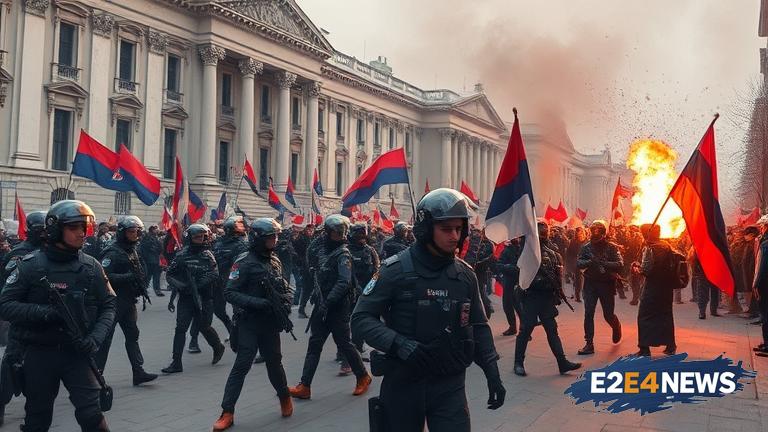Serbia has been embroiled in a wave of protests and clashes between demonstrators and police, leading to a significant disruption of the academic year. The protests, which began in response to a series of government decisions, have escalated into violent confrontations, with police using tear gas and batons to disperse crowds. The situation has sparked concerns about the country’s stability and the potential for further unrest. The academic year, which was supposed to start in September, has been delayed due to the ongoing protests. Students and teachers have been affected, with many schools and universities forced to close temporarily. The government has been criticized for its handling of the situation, with many accusing it of using excessive force against protesters. The protests have also highlighted deep-seated issues within Serbian society, including corruption, economic inequality, and a lack of trust in institutions. The country’s president, Aleksandar Vucic, has been accused of authoritarianism and suppressing dissent. The European Union has called for calm and restraint, urging the government to engage in dialogue with protesters. The United States has also expressed concern about the situation, emphasizing the importance of respecting human rights and the rule of law. As the situation continues to unfold, there are fears that the protests could spread to other parts of the country. The economic impact of the protests is also a concern, with many businesses forced to close and tourism affected. The Serbian government has announced plans to increase security measures, including the deployment of riot police and the imposition of curfews. However, these measures have been met with skepticism by many, who argue that they will only exacerbate the situation. The opposition has called for the government to resign, citing its failure to address the underlying issues driving the protests. The situation in Serbia has also drawn attention to the broader regional context, with concerns about the potential for instability to spread to other countries in the Balkans. The European Union has a significant stake in the region, with many countries aspiring to join the bloc. The United States has also been engaged in the region, providing support for democratic development and stability. As the situation in Serbia continues to evolve, it is likely that the international community will play a key role in shaping the country’s future. The protests have also highlighted the importance of social media and other digital platforms in mobilizing dissent and organizing protests. The government has been accused of attempting to restrict access to these platforms, further fueling concerns about censorship and freedom of expression. In conclusion, the situation in Serbia is complex and multifaceted, with deep-seated issues driving the protests and clashes between demonstrators and police. The international community will be watching closely as the situation unfolds, with a focus on promoting stability, respect for human rights, and democratic development.
